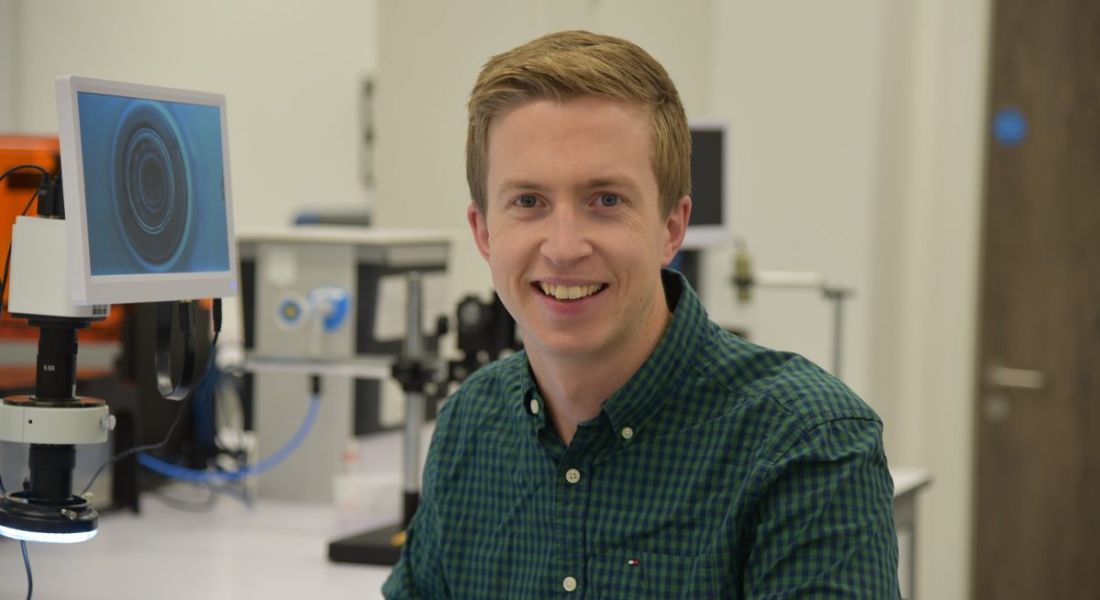There are so many career options within the science industry, but what does a typical day look like for someone in medtech?
The science industry is huge when it comes to career paths and there are plenty of options for those who want to work in the industry. For example, you could be a product engineer for a major medtech facility, working on life-changing devices.
But what does a role like that actually look like? What sort of skills do you need to work in the medtech industry? What are the challenges you might face?
Philip Sheridan is a product engineer working as part of medtech giant BD. Here, he gives an insight into what his role is like.
What is your role within BD?
I am a product engineer working within the R&D team, concentrating on the development of delivery devices for the diabetes care sector.
If there is such a thing, can you describe a typical day in the job?
My day typically starts with a review of email queries that come in overnight from different R&D, marketing or production sites across the globe. I will add any new queries to my work list and create an action list for tasks to be completed on that day.
Following on from that, I generally start my laboratory product functionality testing. The product testing can range from tensile or torsion tests, to visual inspections and other customised, product-specific bench tests.
Other daily duties include generating engineering protocols and reports, reviewing statistical analysis from product test results, and assessing the feasibility and product impact for any change requests that are generated.
What types of project do you work on?
The R&D team is responsible for a variety of projects ranging from component redesign, material evaluations, product functionality testing, to new product development and test method validation.
I am currently working on a laboratory installation project where we have acquired multiple new pieces of state-of-the-art multisensory measuring machines, tensile testers, digital microscopes and rapid prototyping machines.
This is a challenging project as it requires a variety of different validation strategies depending on the piece of equipment, and the completion of product testing in multiple different R&D sites in the US and India.
What skills do you use on a daily basis?
Project management and technical engineering report analysis are the main skills that I use on a daily basis. It is important to be able to correctly interpret the results from product testing and generate the correct conclusions in order to be able to prove that a particular product improvement has merit. Working in the R&D lab, I also rely on the lab skills I have developed through college and other jobs.
As we are often purchasing new and more advanced pieces of equipment for product testing, the whole team is constantly learning new skills, sharing knowledge and cross-training each other in order to advance the overall capabilities of the team.
What is the hardest part of your working day?
Trying to coordinate tasks that are being completed in multiple time zones can be challenging for ensuring my project timelines stay on track. This role has been an excellent opportunity to improve my communication skills as I ensure that all tasks undertaken abroad are completed correctly and that no important information is lost in translation.
Do you have any productivity tips that help you through the working day?
The Eisenhower Time Management Matrix is a useful tool to help prioritise tasks by urgency and importance, sorting out less-urgent and less-important tasks, which should either be delegated or not done until a later time. Arranging your daily tasks into this type of matrix ensures you do not neglect any high-priority work.
When you first started this job, what were you most surprised to learn was important in the role?
The medical industry is a very thorough business. The documentation review process can sometimes take longer than you would expect if you are used to working in other industries. However, being accountable for the work you complete is an important aspect of the job, and it is this review process that keeps our work at a high standard to ensure product quality is always maintained.
How has this role changed as the medtech sector has grown and evolved?
Over the past year, our R&D team has grown rapidly to keep up with the ever-expanding demands in the diabetes care sector. As the diabetes care market grows, there is greater emphasis on our role and responsibility to advance treatment technologies for the disease. A high level of focus is being place on innovation and how we can improve how patients around the world manage their disease.
What do you enjoy most about the job?
I work with an excellent team in BD. There is a great support system and friendly atmosphere within the core R&D team, and, as more people have joined the team from different backgrounds outside of the medical industry, the ability for knowledge sharing has increased.
Everyone in the team is very helpful so you never feel isolated when dealing with a problem – there is always someone there to help or give advice when dealing with a technical issue.




